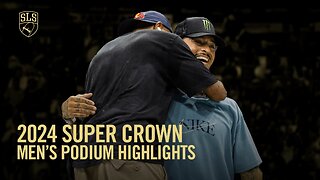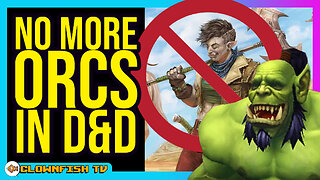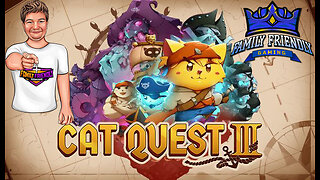Premium Only Content

55 - Assets or Liabilities - The Impact on Relationships & Fostering Healthier Connections
Is it time to reassess how we view those in our lives as mere commodities? Join us on a thought-provoking journey as we explore the psychological underpinnings of seeing people as assets or liabilities and the undeniable impact this has on our relationships. With insights drawn from evolutionary psychology and economic theory, we unravel why such a mindset persists from our ancestors' survival strategies to modern-day relationship dynamics. Our conversation cuts deep into the dehumanizing effects this view can have and how it can skew the balance of our connections, potentially harming our self-worth and decision-making processes.
As we navigate the terrain of human valuation, we pivot towards enlightenment and self-improvement. We'll share strategies to foster empathy, compassion, and a recognition of the intricate nature of individuals beyond superficial assessments. You'll hear from experts on how to cultivate self-awareness, self-compassion, and mutual growth within your relationships. This episode is not just about the what and why—it's about the how. How can we build connections rooted in mutual respect and shared development? How can we embrace a growth mindset together? Tune in for an episode that promises to challenge your perspectives and inspire a transformation towards more authentic, meaningful relationships.
#I4L #informationforlife #relationships #assetsliabilities #evolutionarypsychology #economics #dehumanization #selfworth #empathy #compassion #selfawareness #selfcompassion #reciprocity #growthmindset #personaldevelopment #communication #authenticconnections #relationshipadvice #healthyrelationships #understandingpeople
Baumeister, R. F., & Leary, M. R. (1995). The need to belong: Desire for interpersonal attachments as a fundamental human motivation. Psychological Bulletin, 117(3), 497–529.
Brown, B. (2022). The Gifts of Imperfection: 10th Anniversary Edition: Features a new foreword and brand-new tools (Anniversary edition). Hazelden Publishing.
Buss, D. (2019). Evolutionary Psychology: The New Science of the Mind (6th edition). Routledge.
Buss, D. M., & Schmitt, D. P. (2011). Evolutionary Psychology and Feminism. Sex Roles, 64(9–10), 768–787. https://doi.org/10.1007/s11199-011-9987-3
Covey, S. R., Collins, J., & Covey, S. (2020). The 7 Habits of Highly Effective People: 30th Anniversary Edition (Anniversary edition). Simon & Schuster.
Dweck, C. S. (2008). Mindset: The new psychology of success (Ballantine Books trade pbk. ed). Ballantine Books.
Finkel, E. J., Hui, C. M., Carswell, K. L., & Larson, G. M. (2014). The Suffocation of Marriage: Climbing Mount Maslow Without Enough Oxygen. Psychological Inquiry, 25(1), 1–41. https://doi.org/10.1080/1047840X.2014.863723
Gottman, J., & Silver, N. (2015). The Seven Principles for Making Marriage Work: A Practical Guide from the Country’s Foremost Relationship Expert (Revised ed. edition). Harmony.
Gruenfeld, D. H., Inesi, M. E., Magee, J. C., & Galinsky, A. D. (2008). Power and the objectification of social targets. Journal of Personality and Social Psychology, 95(1), 111–127. https://doi.org/10.1037/0022-3514.95.1.111
Haslam, N. (2006). Dehumanization: An Integrative Review. Personality and Social Psychology Review, 10(3), 252–264. https://doi.org/10.1207/s15327957pspr1003_4
Illouz, E. (2013). Why Love Hurts: A Sociological Explanation (1st edition). Polity.
Loewenstein, G. F., Weber, E. U., Hsee, C. K., & Welch, N. (2001). Risk as feelings. Psychological Bulletin, 127(2), 267–286. https://doi.org/10.1037/0033-2909.127.2.267
Neff, K. (2015). Self-Compassion: The Proven Power of Being Kind to Yourself (Reprint edition). William Morrow Paperbacks.
Neff, K., & Germer, C. (2018). The Mindful Self-Compassion Workbook: A Proven Way to Accept Yourself, Build Inner Strength, and Thrive (Workbook edition). The Guilford Press.
Orth, U., Robins, R. W., & Widaman, K. F. (2012). Life-span development of self-esteem and its effects on important life outcomes. Journal of Personality and Social Psychology, 102(6), 1271–1288. https://doi.org/10.1037/a0025558
Pfeffer, J. (2010). Building Sustainable Organizations: The Human Factor. Academy of Management Perspectives, 24(1), 34–45. JSTOR.
Reis, H. T., Clark, M. S., & Holmes, J. G. (2004). Perceived Partner Responsiveness as an Organizing Construct in the Study of Intimacy and Closeness. In Handbook of closeness and intimacy. (pp. 201–225). Lawrence Erlbaum Associates Publishers.
Rogers, C. (1995). A Way Of Being (1st edition). HarperOne.
TEDx Talks (Director). (2013, December 12). The power of empathy: Helen Riess at TEDxMiddlebury. https://www.youtube.com/watch?v=baHrcC8B4WM
-

I_Came_With_Fire_Podcast
12 hours ago"Veteran Health, Military Culture, and American Exceptionalism" with Matt Kenney
4.06K3 -
 23:21
23:21
Simply Bitcoin
1 day ago $13.86 earned$1M Bitcoin in 2025? | Trump's Plan to End the Fed Revealed!
68.8K28 -
 17:19
17:19
SLS - Street League Skateboarding
17 days agoTop Moments from the Men’s Super Crown Final! Nyjah Huston, Giovanni Vianna and Gustavo Ribeiro 👑
39.2K -
 LIVE
LIVE
Major League Fishing
3 days agoLIVE! - Bass Pro Tour: Stage 1 - Day 3
798 watching -
 47:00
47:00
vinndoggradiousa
5 days agoBYE LEGACY MEDIA guest/ Sam Anthony of YourNews.com
1.37K -
 13:55
13:55
Clownfish TV
14 hours agoOrcs REMOVED from Dungeons & Dragons New Monster Manual?!
1.79K4 -
 15:38
15:38
Chris From The 740
5 hours ago $0.41 earnedThe EAA Girsan Match X 2311 : Premium Features, Unbeatable Value!
6.62K8 -
 14:23
14:23
Degenerate Jay
2 hours ago $0.09 earnedPeople Forgot What Metal Gear Solid Is?
3.47K3 -
 1:01:23
1:01:23
FamilyFriendlyGaming
16 hours ago $3.23 earnedCat Quest III Episode 14
23.5K -
 3:16:59
3:16:59
RG_GerkClan
5 hours ago🔴LIVE - Dominating One Raid at a Time - Escape From Tarkov - Gerk Clan
22K1